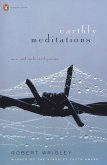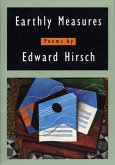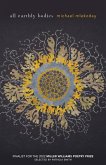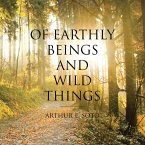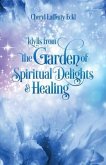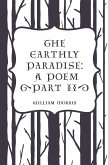From the winner of the National Book Critics Circle Award, a new collection of philosophical, elegiac, and wry meditations on film, painting, music, and poetry itself
Earthly Delights begins with an invocation to the muse and ends with the departure of Odysseus from Ithaca. In between, Troy Jollimore's distinguished new collection ranges widely, with cinematic and adventurous poems that often concern artistic creation and its place in the world. A great many center on films, from Andrei Tarkovsky's Nostalghia to Paul Thomas Anderson's Boogie Nights. The title poem reflects on Hieronymus Bosch's The Garden of Earthly Delights, while another is an elegy for Gord Downie, the lead singer and lyricist for the cult rock band The Tragically Hip. Other poems address various forms of political insanity, from the Kennedy assassination to today's active shooter drills, and philosophical ideas, from Ralph Waldo Emerson's musings on beauty to John D. Rockefeller's thoughts on the relation between roses and capitalist ethics. The book's longest poem, "American Beauty," returns repeatedly to the film of that name, but ultimately becomes a meditation on the Western history of making and looking, and-like many of the book's poems-an elegy for lost things.
Earthly Delights begins with an invocation to the muse and ends with the departure of Odysseus from Ithaca. In between, Troy Jollimore's distinguished new collection ranges widely, with cinematic and adventurous poems that often concern artistic creation and its place in the world. A great many center on films, from Andrei Tarkovsky's Nostalghia to Paul Thomas Anderson's Boogie Nights. The title poem reflects on Hieronymus Bosch's The Garden of Earthly Delights, while another is an elegy for Gord Downie, the lead singer and lyricist for the cult rock band The Tragically Hip. Other poems address various forms of political insanity, from the Kennedy assassination to today's active shooter drills, and philosophical ideas, from Ralph Waldo Emerson's musings on beauty to John D. Rockefeller's thoughts on the relation between roses and capitalist ethics. The book's longest poem, "American Beauty," returns repeatedly to the film of that name, but ultimately becomes a meditation on the Western history of making and looking, and-like many of the book's poems-an elegy for lost things.
Dieser Download kann aus rechtlichen Gründen nur mit Rechnungsadresse in A, D ausgeliefert werden.



